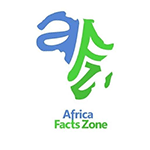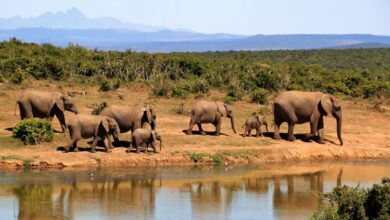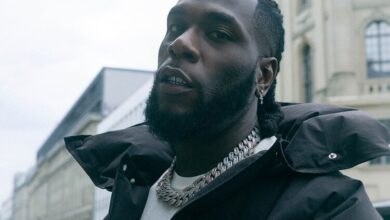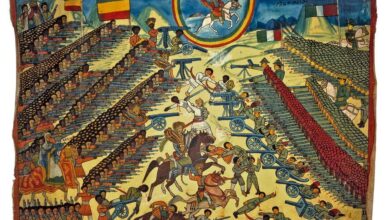Aliko Dangote: The Richest Man in Africa & the Richest Black Man in the World
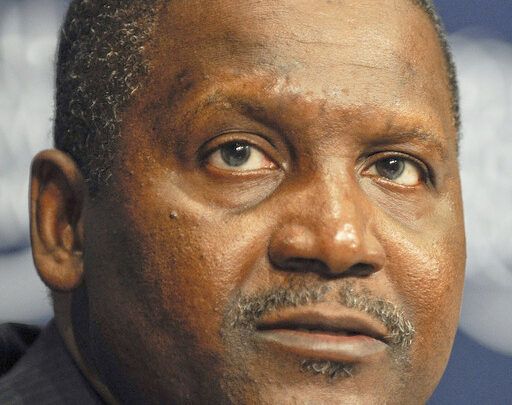
Aliko Dangote, who is expected to have a net worth of over $13.5 billion, has been crowned the wealthiest person in Africa in 2023 for the twelfth consecutive year.1 In addition, he is the richest black person in the world.
The Dangote Group, the economic empire he started constructing more than three decades ago, is the most valuable company in West Africa and one of Nigeria’s top private employers.
Dangote borrowed $3,000 from his uncle shortly after receiving his college degree at the age of 21 in order to import and sell agricultural products in his home Nigeria.
His company endeavor was successful right away, and he was able to pay back the full debt within three months of operations.
In the end, Dangote was successful in growing a small local commodity trading company into a multibillion dollar company.
He is currently a prominent industrialist and philanthropist in Africa.
Aliko Dangote Early Childhood and Education
In Kano State, Nigeria, where he was born in 1957, Dangote was raised in a family of business owners. He was reared as a Muslim and was well-off.
Sanusi Dantata, the grandfather of Dangote, was formerly listed as one of Kano’s richest residents.
He became wealthy by selling goods like grains and oats. After his father passed away in 1965, Dantata took over as Dangote’s guardian.
Dangote, who spent a large portion of his youth living with his grandpa, had an early interest in business.
He recently said that while he was in elementary school, “I can remember when I would go and purchase cartons of sweets [sugar boxes] and I would start selling them simply to get money.
Even then, I was quite interested in business.
At the age of 21, Dangote received his degree from Al-Azhar University in Egypt, which is regarded as one of Islam’s most esteemed institutions. The aspiring businessman continued his business study there.
Also Read: Richest Black Man America: The Richest Black Man in United States of America
Important Achievements
Manufacturing, consumer products, oil and gas, and other sectors are among the many that Dangote is involved in commercially.
However, Dangote Cement, which Dangote controls 85% of, accounts for the majority of the conglomerate’s earnings.
The company, which conducts business in 10 African nations, generates 48.6 million metric tons of cement annually, according to Forbes magazine.
Additionally, Dangote controls the third-largest sugar refinery in the world. The Dangote Cement Group recorded yearly sales of 443.7 billion Nigerian naira ($955.4 million USD) in 2022.
An Empire Emerges
When Dangote received his college diploma in 1977, he was able to persuade his uncle to give him a loan so he could launch a business.
He was able to acquire soft goods from worldwide vendors at wholesale costs thanks to the loan’s money.
Brazilian sugar and Thai rice were two of his key imports. He subsequently marked them up profitably and sold such goods in modest numbers to residents of his community.
The business was immediately profitable and became a cash cow. Dangote asserts in an interview with Forbes that on his best days, he was making a $10,000 daily net profit. As a result, he was able to pay back his uncle in just three months.
Eliminating the middleman
Dangote developed a facility to create the pasta, sugar, salt, and wheat he had been importing and selling for the preceding 20 years after realizing that serving as a middleman was an extremely expensive undertaking.
At about the same time, a state-owned cement firm was given to Dangote. Dangote built a multimillion-dollar manufacturing facility in 2005, greatly expanding the company’s activities.
In addition to a $479 million loan from the International Finance Corporation, a subsidiary of The World Bank, the construction was funded with $319 million of Dangote’s own funds.
Since then, he has divided his industrial operations into three independent publicly traded companies: Dangote Cement PLC, Dangote Sugar Refinery PLC, and National Salt Company of Nigeria PLC.
Building up the Dangote Empire
One of the reasons the firm has expanded so much since its beginning is because Dangote has always put the majority of his revenues back into his companies.
Aliko Dangote stated, “We [Dangote Group] are not doing like other Africans who keep the majority of their money in the bank,” in an interview with Al Jazeera News.
We do not maintain a bank account. We totally invest whatever we have and we continue to invest (sic).
Dangote first went a different route than many affluent Nigerians who made their fortune in oil, but he has now entered the oil and gas business.
Dangote is building a huge oil refinery in Lagos that will begin operations in late 2021 in an effort to use part of his cash reserves.
If it is effective, Nigeria’s dependency on foreign oil and gas providers might be greatly reduced, and the $7 billion in fuel imports every year could be stopped.
The $15 billion Nigerian refinery, which is planned to generate 650,000 barrels of oil per day, is the country’s greatest industrial undertaking to date.
Also Read: The 7 Wealthiest Black women in America in 2023
Awards won by Dangote
Leading philanthropist Aliko Dangote established his own private charity foundation in 1994.
The Aliko Dangote Foundation (ADF) is committed to improving people’s lives throughout Africa through funding programs in the fields of health, education, and economic empowerment.
Currently, the foundation is sub-Saharan Africa’s biggest private foundation.
Notably, Dangote’s Foundation and the Bill and Melinda Gates Foundation started working together in 2013 to combat polio and improve countrywide immunization practices.
Nigeria was the last country on the African continent to get formal certification that it was free of wild polio in August 2020.
Dangote also serves on the boards of well-known worldwide organizations that promote sustainable development, healthcare, and economic progress.
Among them are the Harvard Advisory Council, the JP Morgan International Council, the Clinton Health Access Initiative, the McKinsey Advisory Council, and the International Business Council of the World Economic Forum.
He was the first individual outside of government officials to obtain the Grand Commander of the Niger (GCON) title from the Nigerian government.
Aliko Dangote: How Did He Become Rich?
In addition to importing and selling agricultural products, Aliko Dangote subsequently found success in the manufacturing, oil and gas, and consumer goods industries.
Dangote Cement, which operates in 10 African nations and produces 48.6 million metric tons of cement annually, is the main source of Dangote’s wealth.
For what is Aliko Dangote well-known?
One of the most successful businessmen in Africa is Aliko Dangote. The primary products of Dangote’s businesses are sugar, oil, and cement.
Who Is the World’s Richest Black Person?
Aliko Dangote, the richest Black person in the world, was born in Nigeria.12 He comes in at $130 on the list of the world’s wealthiest people overall.
Conclusion
Aliko Dangote’s rise to fame is not a typical “rags-to-riches” tale. He hailed from an affluent family that could give him the funding he required to launch his firm.
Dangote has diversified its operations throughout the years, entering new industries including steel production, real estate, and telecommunications.
The Dangote Group, his holding business, is now the biggest conglomerate in West Africa.14 It appears that he will continue to enjoy the title of “richest man in Africa” for many years to come.
